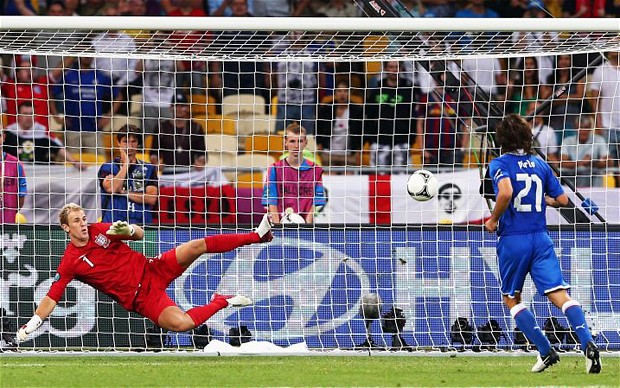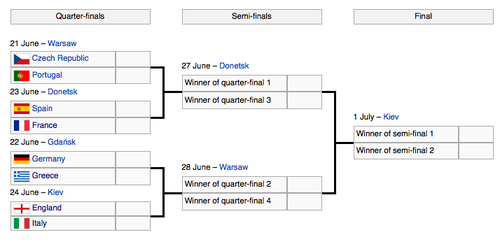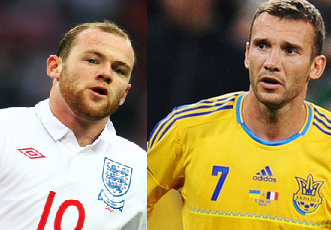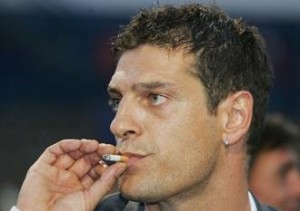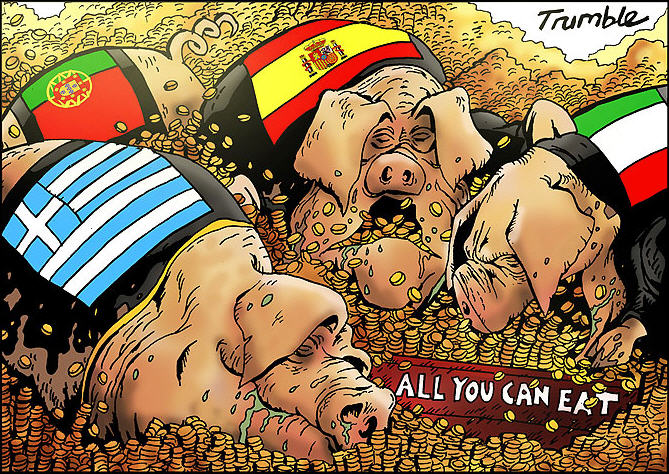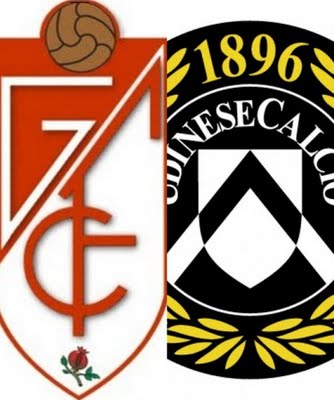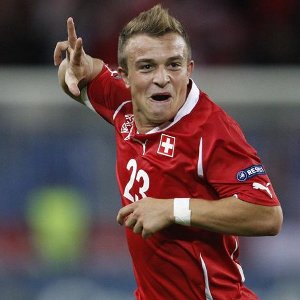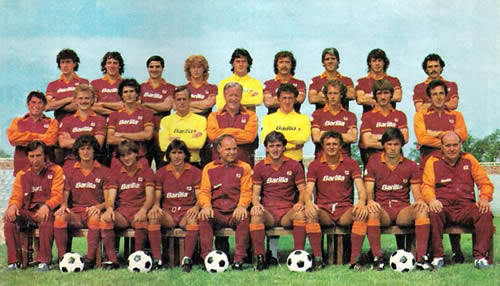After a tremendously fun twelve days of Euro2012 group stage matches, we found the knockout phase over the past week a bit of a letdown. Well, until the 2nd semifinal match on Thursday.
(This was originally going to be a wrapup of the quarters and semis, but got long enough with just the quarters. See here for some thoughts on the semifinals.)
The quarterfinals were all one-sided, at least in terms of possession and chances created. Indeed, they fell into the Manichean proactive/reactive divide that Jonathan Wilson identified early in the tournament, in a column about “the flaw of tiki-taka“:
A clear pattern has emerged from the first round of group games at Euro 2012. Holland against Denmark, Germany against Portugal, Spain against Italy, Ireland against Croatia, France against England, the first half of Poland against Greece: each have featured one proactive team taking the game to the opposition; one reactive team sitting deep with compact lines absorbing the pressure, trying to restrict the opposition and looking to score either from counter-attacks or set-plays.
That was also the pattern that emerged in the quarterfinal games: Portugal proactive against a reactive Czech Republic, Germany against Greece, Spain against France, and Italy against England.
But of the proactives, only Germany was able to finish their chances, lighting up Greece for 4 goals (reinforcing the then-growing conventional wisdom that der Nationalmannschaft were the clear favorites to win the whole thing).
The only drama in the first quarterfinal, a week ago Thursday, was waiting to see if Cristiano Ronaldo would finally score, which he finally did with an admittedly spectacular header late in the game (reinforcing the then-growing sense that just maybe he could carry them to the final).
Last Saturday night in Donetsk, Spain unlocked the l’autobus the French had garé, scoring an early goal, and then spent the 70 minutes playing the recently much-maligned tiki-taka, before adding a late PK score (oddly, Xabi Alonso scored both goals, in what was his 100th cap).
In the last quarterfinal match, Sunday in Kyiv, Italy bossed the match (especially the much-praised deep-lying midfield capo Andrea Pirlo), but Gli Azzurri couldn’t find their way to a finish against Roy Hodgson’s English bus. It was scoreless through 120 minutes, all the way to penalties, which at least made for a tense end to the quarterfinals–a shootout that will be remembered for Pirlo’s audacious Panenka.
From Daniel Taylor’s writeup in the Guardian:
Italy had 815 passes compared with England’s 320. The shot count was 35-9. Italy had 20 on target, one more than England managed in their four games. Andrea Pirlo put together more passes, 117, than England’s entire midfield quartet of Gerrard, Milner, Scott Parker and Ashley Young.
It was a peacock-like spreading of Pirlo’s feathers. What a player he is and what a moment when he ambled forward for his penalty and popped the ball into the back of the net. Hart had tried everything to put off Italy’s penalty-takers. He eyeballed them. He stuck out his tongue, pulled faces, made silly noises. He did everything but drop his shorts and squirt water from a flower. Pirlo talked afterwards of deliberately setting out to bring him down a peg or two. So he went for the Panenka chip, named in honour of Antonin Panenka’s decisive penalty for Czechoslovakia against West Germany in the 1976 final. Of all the moments that encapsulated Sunday’s quarter-final, it was this: the man in the England shirt acting the fool while the serial champion put him in his place and the rest of the football world sniggered behind their hands.
(Emphasis added, with a h/t to the English friend of ours who copied and pasted that last sentence to facebook midweek, prefaced with: “I know its ancient history now, but this sums up England’s lack of a game today.”)
The details of the quarterfinal results, with links to UEFA.com’s match reports/facts:
| Czech Republic | 0-1 | Portugal | ||
| Referee: Howard Webb (ENG) – Stadium: National Stadium Warsaw, Warsaw (POL) | ||||

